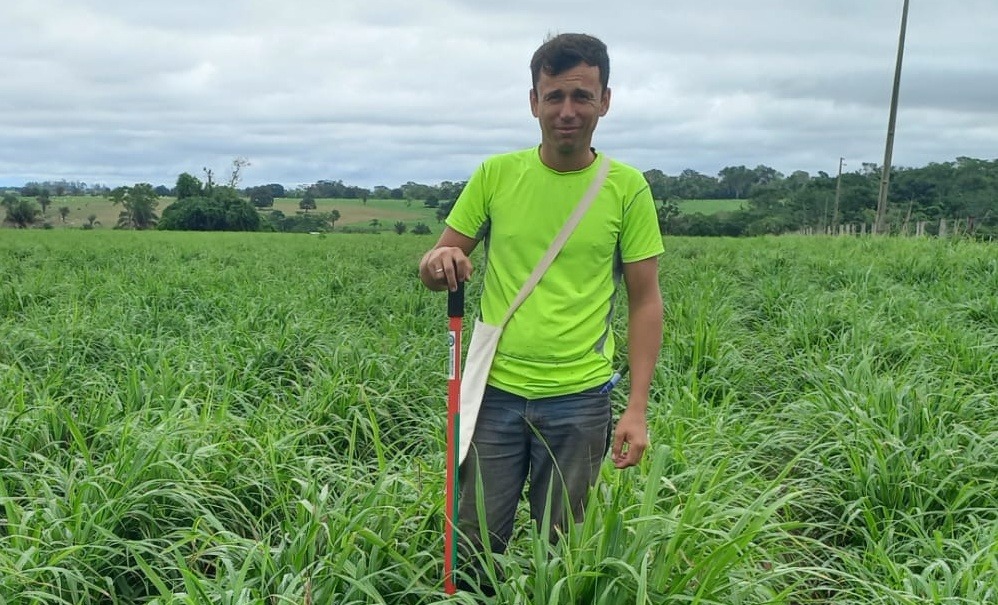The Primavera farm, owned by producer Douglas Oliveira from São José dos Quatro Marcos (Mato Grosso state), is among the more than 5 thousand rural properties assisted by the Technical and Managerial Assistance (ATeG) of the National Rural Learning Service of Mato Grosso (SENAR-MT). The good results were already evident in the first year of assistance, with a 439% increase in milk production.

“The program helped with cow feeding and planning, which we didn’t have before. Based on the technician’s guidance, we now learn, research, and participate in courses to further develop our activities,” said Douglas.
The producer concluded a Law degree in the city and went back to his roots, in the countryside. After working for two years as a rural producer and trying to improve productivity, Douglas joined ATeG at his neighbors’ suggestion. “At the time, production was very small. There were 18 lactating cows, with an average production of 5.41 liters per animal/day, totaling 97.33 liters/day and 2,920 liters/month.”
In September of the following year, the reality was different. The 2,920 liters/month increased to 12,700 liters per month, a 439% growth compared to the previous 18 months. The average production per animal increased from 5.41 liters/day to 17.64 liters/day, with six more lactating cows, totaling 24 animals.
The results were obtained from an initial diagnosis performed by ATeG, which detected the absence of productive, reproductive, economic, and planning control, hindering good productivity. The first suggestions from zootechnician and field technician accredited to SENAR-MT, Alessandro Nogueira, focused on animal feeding, such as forage planning, reform and fertilization of six hectares of pastures, paddocking of pastures, and production of three hectares of bulky feed for the dry season.
“The producer was also advised on improving animal health, such as mastitis control and milking hygiene. With that, he started measuring each animal separately, checking costs with concentrate, mineral, and silage,” explained Alessandro.
Environmental benefits were also seen. A septic tank was built to dispose of animal waste, contributing to the environment conservation on the property. With the help of his wife, the producer improved management through the Producer Notebook, a tool that helped him estimate costs and analyze the property’s development.
The improvement in production is reflected in the increase in gross income from dairy farming, with a more than 800% growth in the family’s income. The achievement allowed to hire labor to assist in the property’s activities. “It is our source of income, and technical assistance has helped us a lot in developing this activity.”
Technical and Managerial Assistance
SENAR-MT’s ATeG completes seven years of activity in the dairy cattle production chain, the first to be implemented in Mato Grosso state. The movement that started in the cities of Pontes and Lacerda extended to 67 municipalities, involving 42 Rural Unions, and currently serves 1,678 rural properties in this production chain alone.